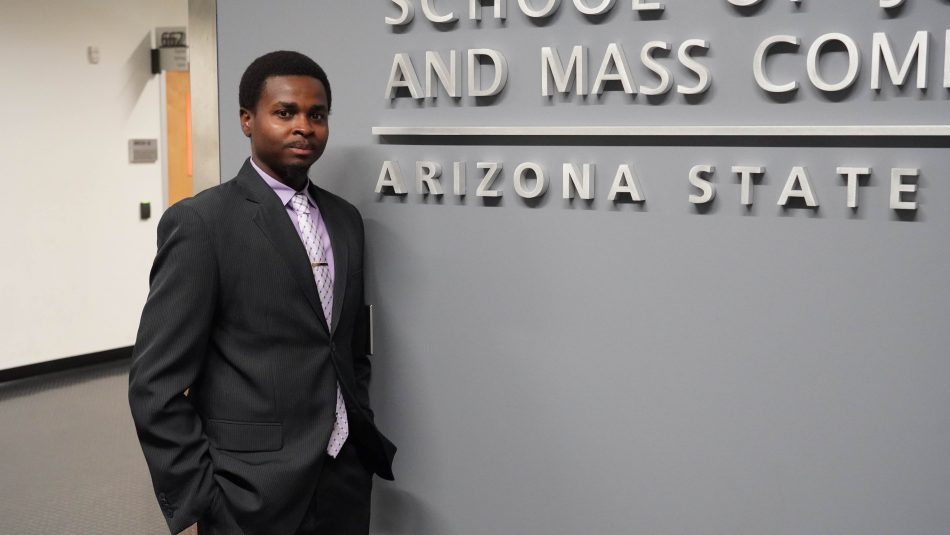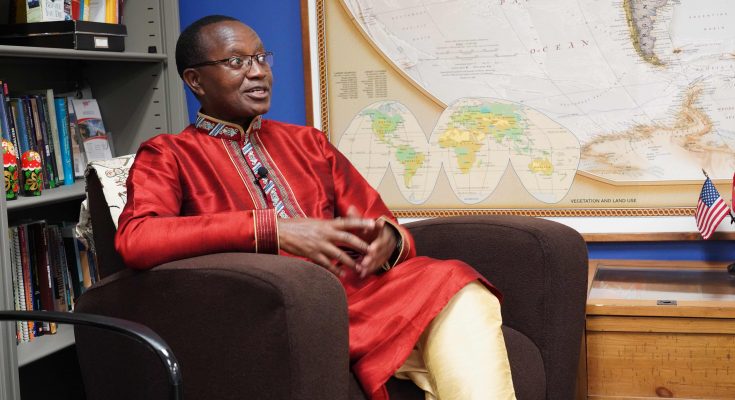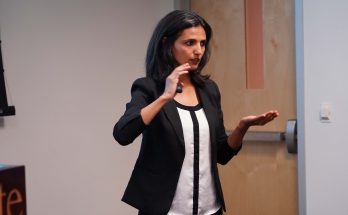By Deusdedit Ruhangariyo and Pierre Negaud Dupenor
There is nothing more fulfilling than meeting a group of over 20 managers, getting together to share ideas and brainstorm about how to be better at their trade.
It all started with a simple search for a good leadership conference that we could attend at the advice of Dr. Bill W. Silcock and Jan H. Malcom, our coordinator and program manager.
As a result, the “Democratic Leadership Workshop” came up. The conference was hosted by the Better Business Bureau (BBB) at 1010 East Missouri Avenue.
The two of us were staying at 601 W. Fillmore street so we decided to share an Uber there. But before leaving our apartment at around 5:40 p.m., we did a Google search about what a democratic leadership is and we got this:
“The democratic leadership style is essentially a mode of leadership that is found in participative management and human resources theory. It is based on mutual respect. It is often combined with participatory leadership because it requires collaboration between leaders and the people they guide. The democratic/participative leadership style places significant responsibility on leaders and their staff.”
Armed with the resources from our Google search, we called an Uber and the driver arrived in three minutes.
In 15 minutes, we were at the BBB, and attendees who had not registered online submitted their credentials.
We entered the venue and about 20 managers were already seated. The convener stood up and introduced the workshop facilitator/speaker, Ms. Stephanie Luz Cordel from All Voices Consulting, LLC.
She started by asking the attendees what they thought Democratic leadership is and why they had come to the workshop.
One manager said something that attracted attention; almost all of us laughed but at something very serious. He said: “I am the only staff at my organization, the rest are volunteers.” He was already wondering how he could be democratic in a situation like that.

Soon after, we immersed ourselves into the workshop which was highly participatory. Summarizing the contents that were displayed during the workshop, three key elements should be highlighted as crucial in the democratic leadership process when it comes to taking decisions:
- Diversity: engaging people with different backgrounds, beliefs, experiences, and recognizing the differences as assets to learning and innovation.
- Inclusion: authentic and empowered participation, a true sense of belonging.
- Equity: recognizing that everyone does not start at the same place, so some people will need different resources or support to achieve the same outcome. The goal is to eliminate disparities and level the playing field.
The presenter also insisted on assessing the team members’ needs, backgrounds and personalities in order to identify their strengths and gaps in terms of experiences and context expertise. A mutual and reciprocal understanding is essential in the democratic leadership style.
The workshop lasted an hour and half. After the presentation, the facilitator gave three short individual democratic leadership skill tests to the attendees.
As we clapped our hands for a workshop well done, the two of us called an Uber again, and we went home asking ourselves about what the other ‘one staff’ manager had said.
As each of the 11 fellows of our cohort start their 10 month ‘voyage’ (as Dr. Bill likes to call it) in a ship that is being captained by Prof. Marianne Barrett, what leadership style will you embrace?
It’s food for thought for all managers.
We both agreed that it’s undeniably important to adopt the democratic leadership style, especially when collaborating in multicultural environments where we must respect and tolerate what differs from us.




